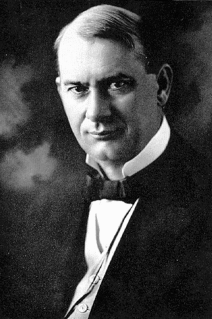A Quote by John Locke
Till a man can judge whether they be truths or not, his understanding is but little improved, and thus men of much reading, though greatly learned, but may be little knowing.
Related Quotes
Letting go all else, cling to the following few truths. Remember that man lives only in the present, in this fleeting instant: all the rest of his life is either past and gone, or not yet revealed. This mortal life is a little thing, lived in a little corner of the earth; and little, too, is the longest fame to come - dependent as it is on a succession of fast-perishing little men who have no knowledge even of their own selves, much less of one long dead and gone.
You are different from the really great man in only one thing: The great man, at one time, also was a very little man, but he developed one important ability: he learned to see where he was small in his thinking, and actions. Under the pressure of some task which was dear to him he learned better and better to sense the threat that comes from his smallness and pettiness. The great man, then, knows when and in what he is a little man.
The important thing is not so much that every child should be taught, as that every child should have the opportunity of teaching itself. What does it matter if the pupil know a little more or a little less? A boy who leaves school knowing much, but hating his lessons, will soon have forgotten all he ever learned; while another who had acquired a thirst for knowledge, even if he had learned little, would soon teach himself more than the first ever knew.
People who know little are usually great talkers, while men who know much say little. It is plain that an ignorant person thinks everything he does know important, and he tells it to everybody. But a well-educated man is not so ready to display his learning; he would have too much to say, and he sees that there is much more to be said, so he holds his peace.
Open your eyes and look for some man, or some work for the sake of men, which needs a little time, a little friendship, a little sympathy, a little sociability, a little human toil....It is needed in every nook and corner. Therefore search and see if there is not some place where you may invest your humanity.
A little lifting up of the heart suffices; a little remembrance of God, an interior act of adoration, even though made on the march and with sword in hand, are prayers which, short though they may be, are nevertheless very pleasing to God, and far from making a soldier lose his courage on the most dangerous occasions, bolster it. Let him then think of God as much as possible so that he will gradually become accustomed to this little but holy exercise; no one will notice it and nothing is easier than to repeat often during the day these little acts of interior adoration.
I greatly doubt whether the men who become pirate chiefs are those who are filled with retrospective terror of their fathers, or whether Napoleon , at Austerlitz, really felt that he was getting even with Madame Mère. I know nothing of the mother of Attila , but I rather suspect that she spoilt the little darling, who subsequently found the world irritating because it sometimes resisted his whims.
We should realize that, if [Socrates] demanded that the wisest men should rule, he clearly stressed that he did not mean the learned men; in fact, he was skeptical of all professional learnedness, whether it was that of the philosophers or of the learned men of his own generation, the Sophists. The wisdom he meant was of a different kind. It was simply the realization: how little do I know! Those who did not know this, he taught, knew nothing at all. This is the true scientific spirit.






































